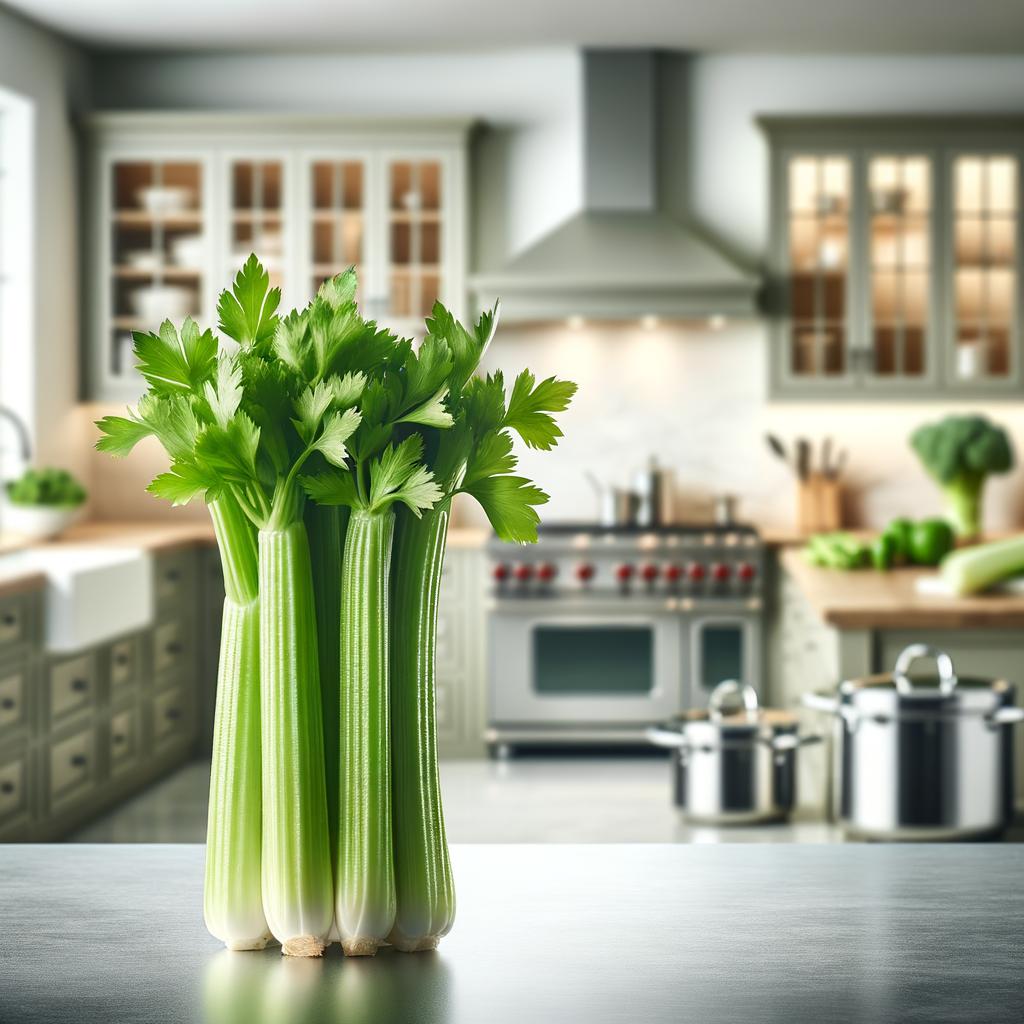Celery Stalks

Description
Meet the humble celery stalk, a delightful, crunchy, and watery vegetable that is often overlooked in the culinary world. Its vibrant green color, crisp texture, and unique flavor profile make it an intriguing ingredient to explore. Its long, slender stalks are topped with feathery green leaves that are not only edible but also packed with flavor. The taste of celery stalks is subtly earthy with a slight hint of peppery spice, and it carries a refreshing, clean aftertaste. What sets celery apart from other vegetables is its high water content, making it a hydrating ingredient, and its distinctive crunch, adding texture to any dish it graces.
Primary Uses
Celery stalks are incredibly versatile in their use. They are commonly used raw in salads, stir-fries, and soups, or as a vehicle for dips in appetizers. In cooking, they are a key component of the classic French mirepoix (a mix of celery, onions, and carrots) used as a base for many sauces and stews. Celery is also a staple in chicken noodle soup, providing a comforting flavor and crunch. Beyond the culinary world, celery has been used medicinally for thousands of years to treat a variety of ailments, from hypertension to inflammation. Its cultural significance is also notable, often being used in holiday dishes and rituals.
History
The history of celery stalks is as rich and intriguing as its flavor. Originating in the Mediterranean region over 3000 years ago, celery was initially used for medicinal purposes before being recognized for its culinary potential. Ancient Romans considered celery a powerful aphrodisiac, and it was often included in love potions. In the Middle Ages, it was believed to ward off evil spirits. Over time, celery's use and popularity evolved, and it became a staple in many cuisines worldwide. Today, it's hard to imagine a kitchen without this versatile vegetable.
Nutritional Information
Celery stalks are a nutritional powerhouse. They are low in calories but high in essential vitamins and minerals like Vitamin K, Vitamin A, and folate. They also contain a good amount of dietary fiber, aiding in digestion. The high water content of celery makes it a hydrating snack, especially during hot weather. Celery also contains unique compounds called phthalides, which have been shown to lower blood pressure and cholesterol levels. When compared to other similar vegetables, celery stands out for its lower calorie content and higher water content, making it an excellent choice for those seeking a healthy, hydrating, and satisfying snack.

